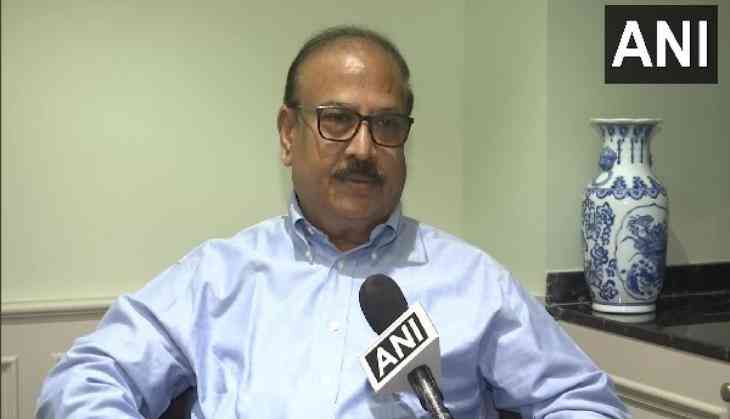
The development of the country's indigenous COVID-19 vaccine Covaxin is a true success story for public-private partnerships in India, which is based on mutual respect, trust and transparency, said Dr Krishna Ella, Chairman and Managing Director, Bharat Biotech.
Speaking at the launch of "Going Viral, Making of Covaxin: The Inside Story" book, Dr Ella highlighted the importance of public-private partnerships in making Covaxin a reality.
"The development of Covaxin is a true success story for public-private partnerships in India, which is based on mutual respect, trust and transparency," he said.
Indian Council of Medical Research (ICMR) on Tuesday launched "Going Viral, Making of Covaxin: The Inside Story" book, which captures first-hand experiences of scientists who worked tirelessly to develop India's first indigenous COVID-19 vaccine.
Authored by Professor (Dr) Balram Bhargava, Director General of the Council, at the India International Centre has been published by Rupa publications and is an attempt to take readers through the journey of developing India's homegrown vaccine.
"Going Viral captures, the first-hand experiences of scientists who worked round the clock to develop India's first indigenous COVID-19 vaccine in a record time of less than eight months," ICMR said in a statement.
The book, a product of extraordinary times, sheds light on the resilience and courage depicted by India's scientific community, in the face of unprecedented challenges and uncertainty.
In his book, Professor (Dr) Bhargava has also brought to the forefront some lesser-known facts behind the making of Covaxin including the innovative ways in which scientists navigated a strict nationwide lockdown to conduct India's first seroprevalence survey.
In another anecdote, the author has highlighted the important role played by 20 monkeys in ensuring that millions of Indians across the country have access to this life-saving vaccine.
Launching Going Viral, Dr Balram Bhargava highlighted the immense strength of Atmanirbhar Bharat (self-reliant India) to fight the odds and stand tall in the global public health community.
"It is the effort of the scientists, researchers and all of the ICMR staff, which has come to fruition", he said.
Rajesh Bhushan, Secretary, Health and Family Welfare said, "India has come a very long way in the fight against COVID-19. Since the beginning of the pandemic, we have has been actively involved in COVID-19 RNA extraction, development of testing kits, and vaccine development. Effective collaboration, strong leadership and efficient teamwork made this possible!"
Professor Vijay Raghavan, Principal Scientific Advisor to Government said that we must ensure that everyone is vaccinated and practise safety measures such as wearing a mask and social distancing.
"I must congratulate ICMR for their partnership with Bharat Biotech. It was timely and efficient. Now we must ensure that everyone is vaccinated and practising safety measures such as wearing a mask and social distancing," he was quoted as saying," said Raghavan.
Early this month, the World Health Organisation (WHO) granted approval for Emergency Use Listing of Covaxin and said that the Bharat Biotech's vaccine was found to have 78 per cent efficacy against the COVID-19 of any severity, 14 or more days after the second dose.
The indigenous, inactivated vaccine--Covaxin-- is developed and manufactured in Bharat Biotech's BSL-3 (Bio-Safety Level 3) high containment facility located in Genome Valley in Hyderabad.
The vaccine is formulated from an inactivated SARS-CoV-2 antigen and is presented in single-dose vials and multidose vials of 5, 10 and 20 doses.
Early this month, the World Health Organisation (WHO) granted approval for Emergency Use Listing of Covaxin and said that the Bharat Biotech's vaccine was found to have 78 per cent efficacy against the COVID-19 of any severity, 14 or more days after the second dose.
The indigenous, inactivated vaccine--Covaxin-- is developed and manufactured in Bharat Biotech's BSL-3 (Bio-Safety Level 3) high containment facility located in Genome Valley in Hyderabad.
The vaccine is formulated from an inactivated SARS-CoV-2 antigen and is presented in single-dose vials and multidose vials of 5, 10 and 20 doses.
(ANI)
Also Read: Delhi Transport Minister inaugurates 'tactical urbanism trials' to improve road safety


